So, Eric Sekou Chelle, eh? After half a year of infuriating indecisiveness, Nigeria’s senior men’s national team finally has a substantive head coach in the saddle, and he is Malian. His bronze dome is also entirely free of follicles but, in today’s managerial climate, that seems almost par for the course. We shall not excoriate him on that account. Not when there is plenty with which to beat both him as a choice and the manner of his appointment.
Perhaps it is best to lead with the positive.
I like Chelle. Granted, my exposure to him has been limited – I only properly became aware of him at last year’s Africa Cup of Nations (AFCON), and that primarily because Mali, as a national team, have intrigued me since the 2000s, when the Seydou Keita crop first came through.
His Eagles used an unusual diamond shape in midfield, and as AFCON is often a rather tactically homogenous tournament, that piqued my interest. The novelty was one thing, but here finally was a manager who was wholly embracing the preponderance of options in one specific department (seriously, look at Mali’s options in midfield. Ridiculous.) and actually building a system to fit. I was “sat”, as the kids say.
Of course, by the end of the tournament, the abiding image of Chelle was of him squatting, bowed and in the throes of anguish as water was poured over his head. This bizarre action, presumably a bid by an assistant to lower his blood pressure, predictably became something of a meme; grief is a private thing, and to mock it would, in most contexts, be considered objectively immoral.
But this is football, damn it. The participants exist for our entertainment, don’t they? What, you think they are people? Hey, everyone, this dweeb thinks footballers (and coaches) are people!
Anyway, stripped of context, it was a funny visual. Even I, stick in the mud that I am, can admit as much. And to be honest, heartache aside, the context was not particularly flattering: his Mali, having dominated swathes of their quarter-final against host nation Cote d’Ivoire, had somehow contrived to throw it away, conceding late in both regulation and extra time to suffer the most crushing of exits.
Of course, even that context is somewhat surface-level. Along the way, Mali had played arguably the best football of the tournament, off-setting debilitating injury-enforced absences upfront by patiently progressing through the thirds and creating overloads and rotations in wide areas.
There is also the fact that, with the benefit of what we now know, there was a sense of cosmic destiny to the march of les Elephants. What is dead may never die, and all that. The effect of the metaphysical where football is concerned can be debated until Tantalus finally gets a bite of that fruit but, as with Chelsea’s UEFA Champions League success in 2012 or Cameroon’s AFCON run in 2017, sometimes the inexplicable happens in this sport, and no amount of logical analysis can make sense of it.
Sure, we could point out that, with nothing to lose and down to 10 men, Cote d’Ivoire first threw on Sebastien Haller and then, after going behind, abandoned all pretence of intricacy in favour of lumping the ball into the final third, thereby negating their numerical inferiority in midfield and exploiting Mali’s lack of aerial aptitude in defence.
For the rational mind sifting for meaning after the fact, that will suffice. However, in the moment, in the cauldron of Bouake, as Mali saw chance after chance – including a penalty – go begging, you could just about make out the imprint of an unseen hand.
Which is not to say Chelle, mugged by kismet itself, got a free pass, and nor should he have. However, by the time he was sacked by the Mali FA in June, it was against the backdrop of administrative problems and much to the dismay of the players, who were universally sorry to see him bear the brunt of what was, in essence, force majeure.
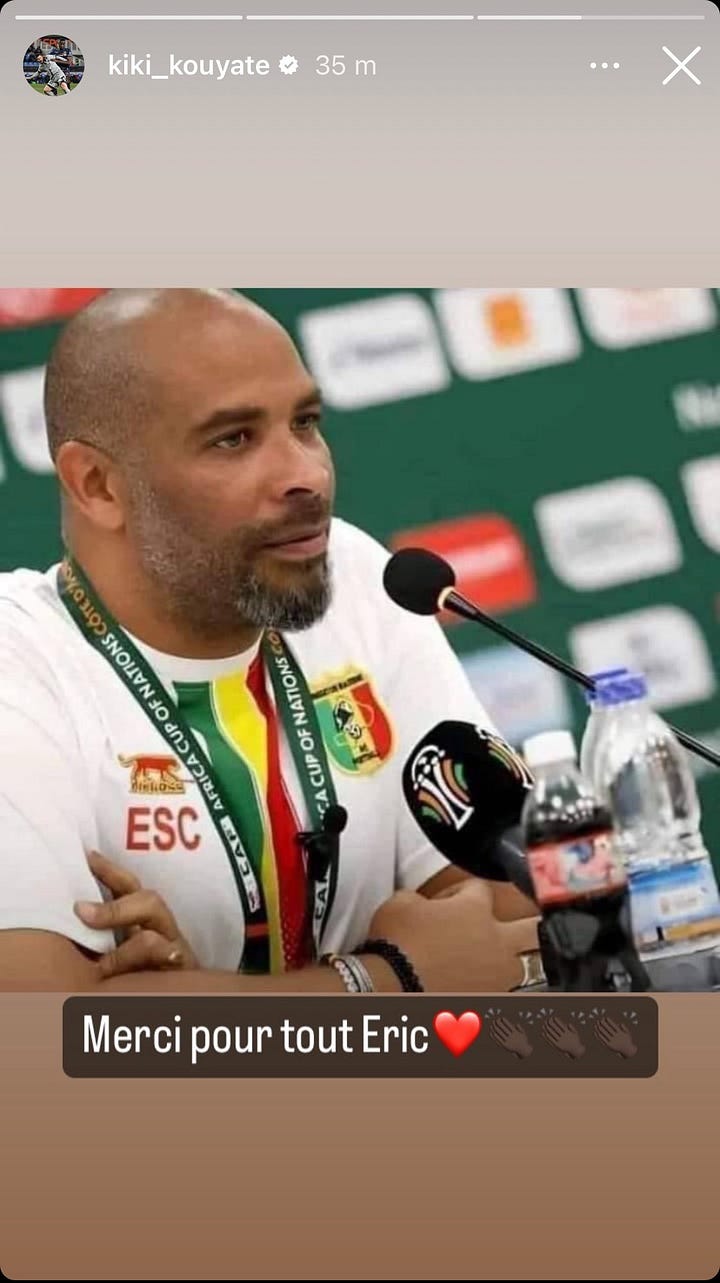

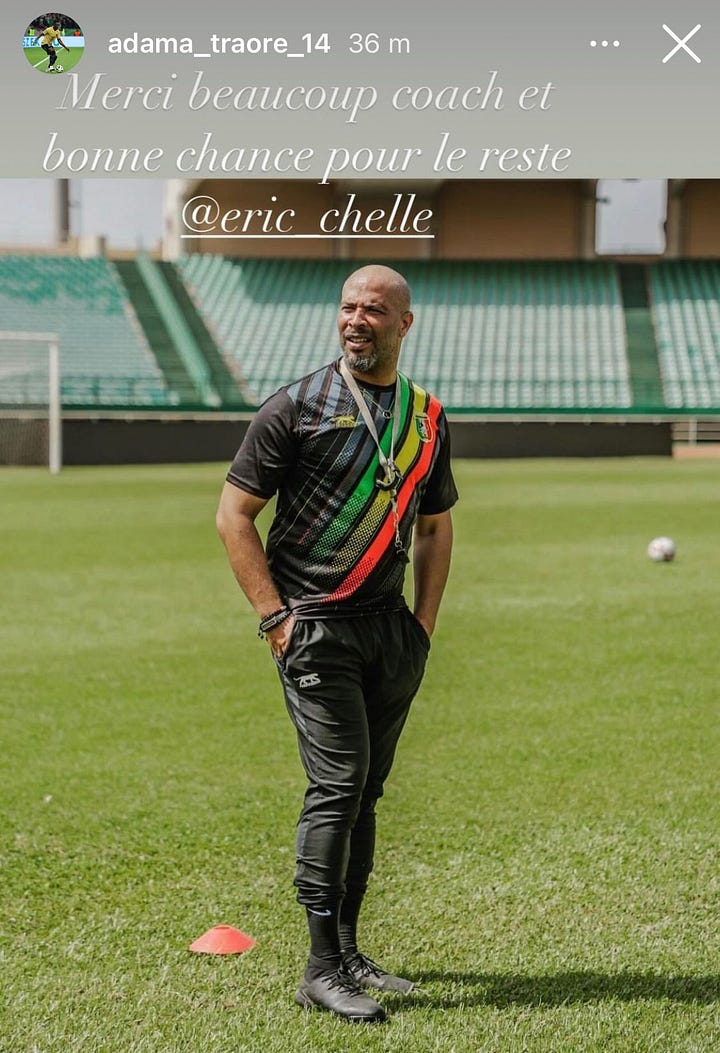
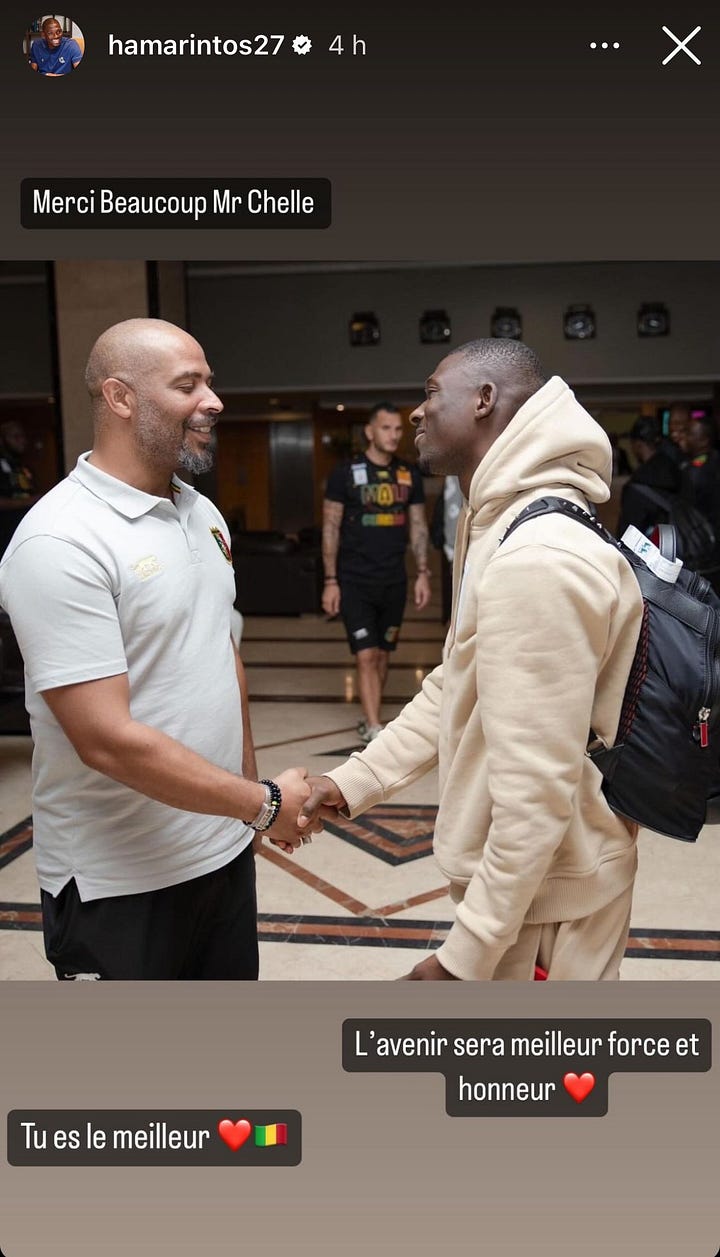
All that to say that I think Chelle is a good coach with a lot of upside, if he picks the right roles.
It is on that proviso, though, that my reservations are based. It is one thing to like a coach, and quite another to like a coach for a particular role. To put it simply, on both sides of the table, the fit is uncomfortable as far as the Super Eagles job goes.
The first, and main issue is the timing of it. I have previously written of the NFF’s penchant for hospital passes where, through a lack of basic organisation, they are wont to place individuals and teams in the worst possible circumstances for success. New year, new them? Hardly.
Chelle’s very first responsibility as Super Eagles head coach will be a must-win match against Rwanda. Yes, the same Rwanda that, less than two months ago, plundered a 2-1 victory in Uyo will return to the scene of the crime, seeking to claim another keepsake. This is remarkable when you consider that the Malian has been out of work for six months, and could have been appointed at any point within that time frame, especially as he was already being linked to the position.
Had he been entrusted with the responsibility then, he would have had the luxury of easing in during an AFCON qualifying series that, by virtue of its format, had considerably less jeopardy. (Let’s face it: Eguavoen only won two of five matches and still managed to steer the Super Eagles through with a game to spare.) Instead, Chelle will have to report immediately to the coal face; for any coach, this would be a sub-optimal situation – Herve Renard, he of two Cups of Nations, famously bottled it – but it is even more so in this case because of the profile of this appointment.
Due to his relative lack of managerial experience and accomplishment, Chelle is of a class of coach that is worth a punt for his home country, especially within an African context wherein many nations are increasingly willing to eschew expatriates. Mali, with no outstanding club success in the last 15 years, lacked a standout candidate in the mould of Walid Regragui, whose success, along with those of Djamel Belmadi and Aliou Cisse, did indigenous coaches a power of good on the continent. And so, the next best thing was a former international with some tenure in European club football. Even if that was Ligue 2.
He is far less suited to manage another national team, not only because, for all that the football was good, his stint with Mali yielded no silverware or unprecedented success, but also on account of the fact that Nigeria is the bigger job. There simply is not enough to commend him removed from his home context, and this has led many to pillory the decision to hand him the reins.
The argument – that if investing faith in a relative rookie was the agreed course of action, then throwing in with a Nigerian should have been the play – is easy to sympathise with. In the lead-up to Finidi’s failed appointment, both Michael Nsien, an U-19s coach based out of the United States, and Ndubuisi Egbo were passed over. And Egbo actually has a league title in a top-flight European league to his name!
Now, this strand of criticism has, in certain quarters, strayed pathetically but predictably into jingoism, but that does not entirely detract from the sentiment: if not an expatriate, then keep faith and build with a (competent and/or promising!) local; somehow, the NFF entered the marketplace and returned not only with neither, but with the worst of both worlds. Neither fish nor fowl, but a serpent.
Here manifests the other sense in which this is a set-up for Chelle: by waiting so long to reach a decision, the NFF unwittingly conditioned the expectation of the Nigeria fanbase. A hungry man will eat an undesirable roll of crusty bread if it is offered to him; if made to wait in hope of a banquet, it is much less gratifying when the same stale confection is offered hours down the line.
This recalls the silliness of the immediate post-Peseiro window, in which Finidi was put in charge temporarily for the March internationals, and then appointed permanently three months later after a public recruitment process had thrown up a number of far more impressive names.
Then, as now, it feels like the NFF have wasted everyone’s time and, in doing so, have doomed Nigeria to consecutive World Cup absences for the first time since its debut in 1994. On paper, winning six from six is a tall task but, of the remaining fixtures, only South Africa away leaps off the page as truly onerous. With the utmost respect, the task is eminently doable with cold sobriety and the correct attitude.
However, in an already dire situation, loading even more risk into the portfolio hardly suggests an awareness of the peril at the gate.



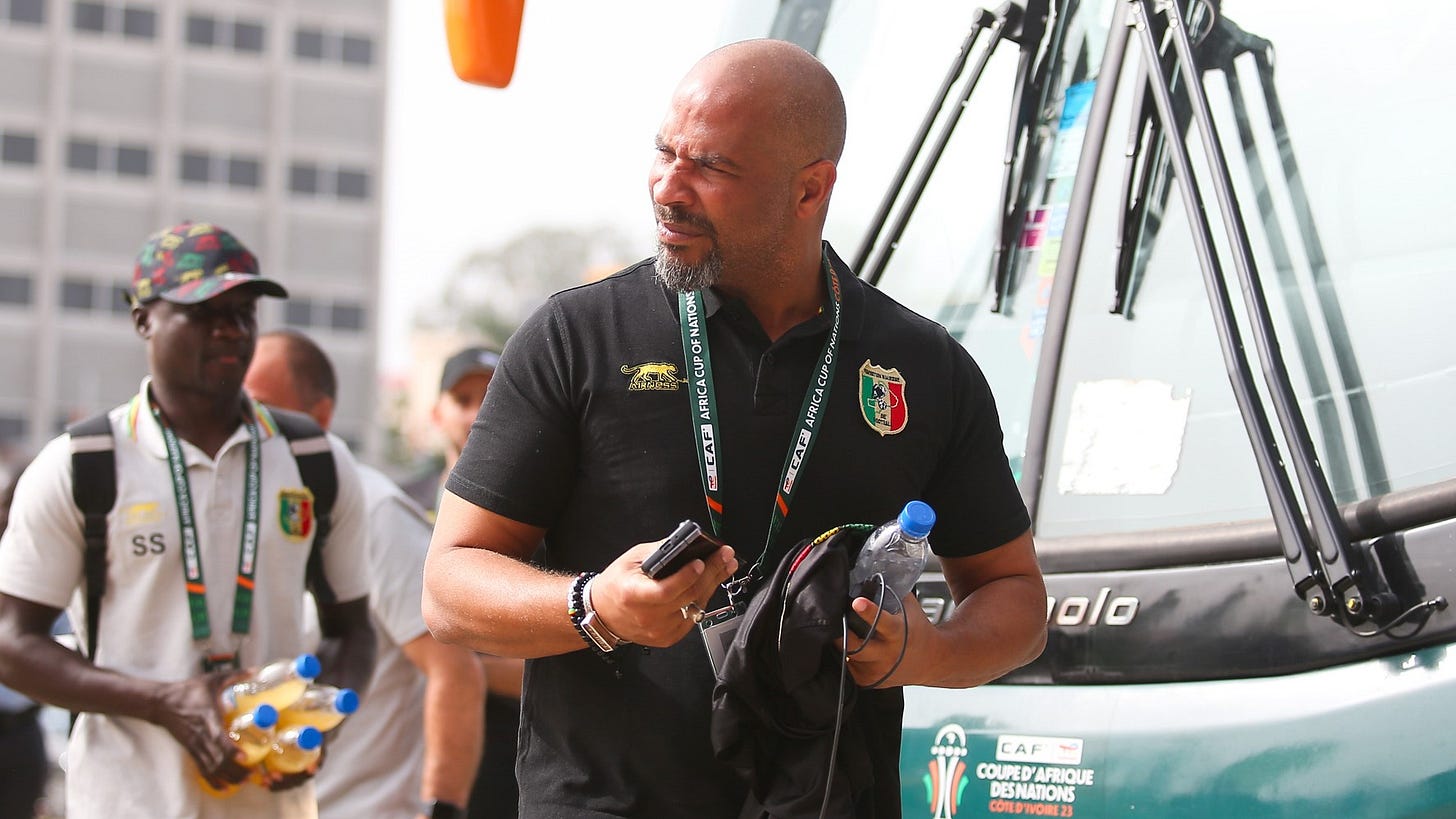
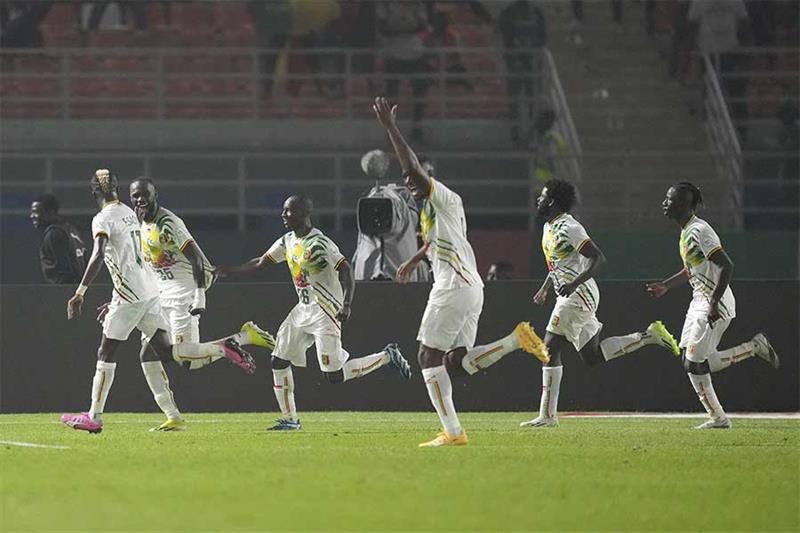
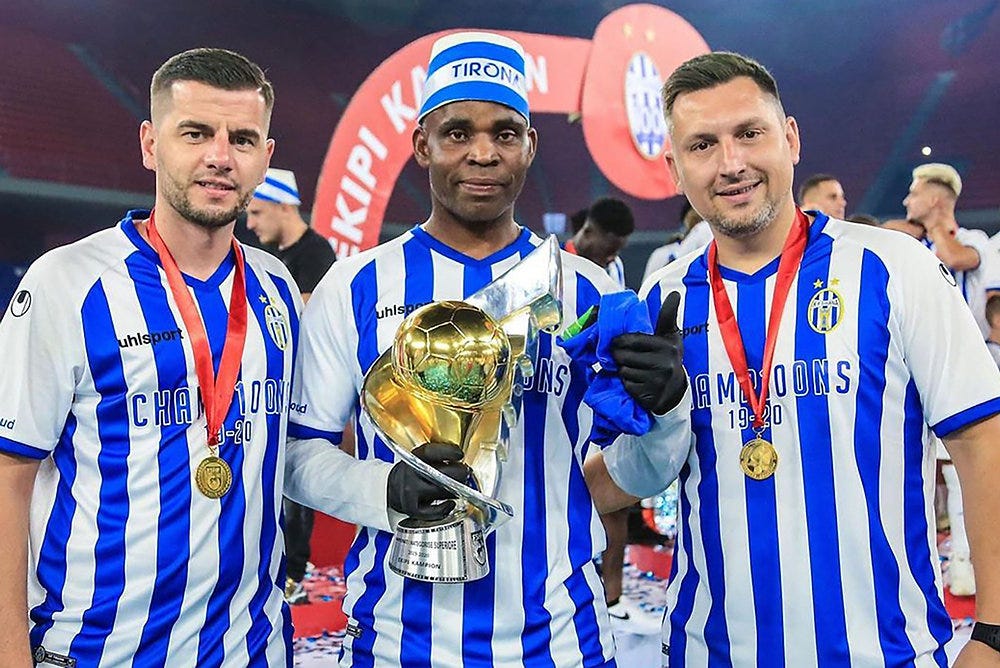
Fantastic read as always, Solace!